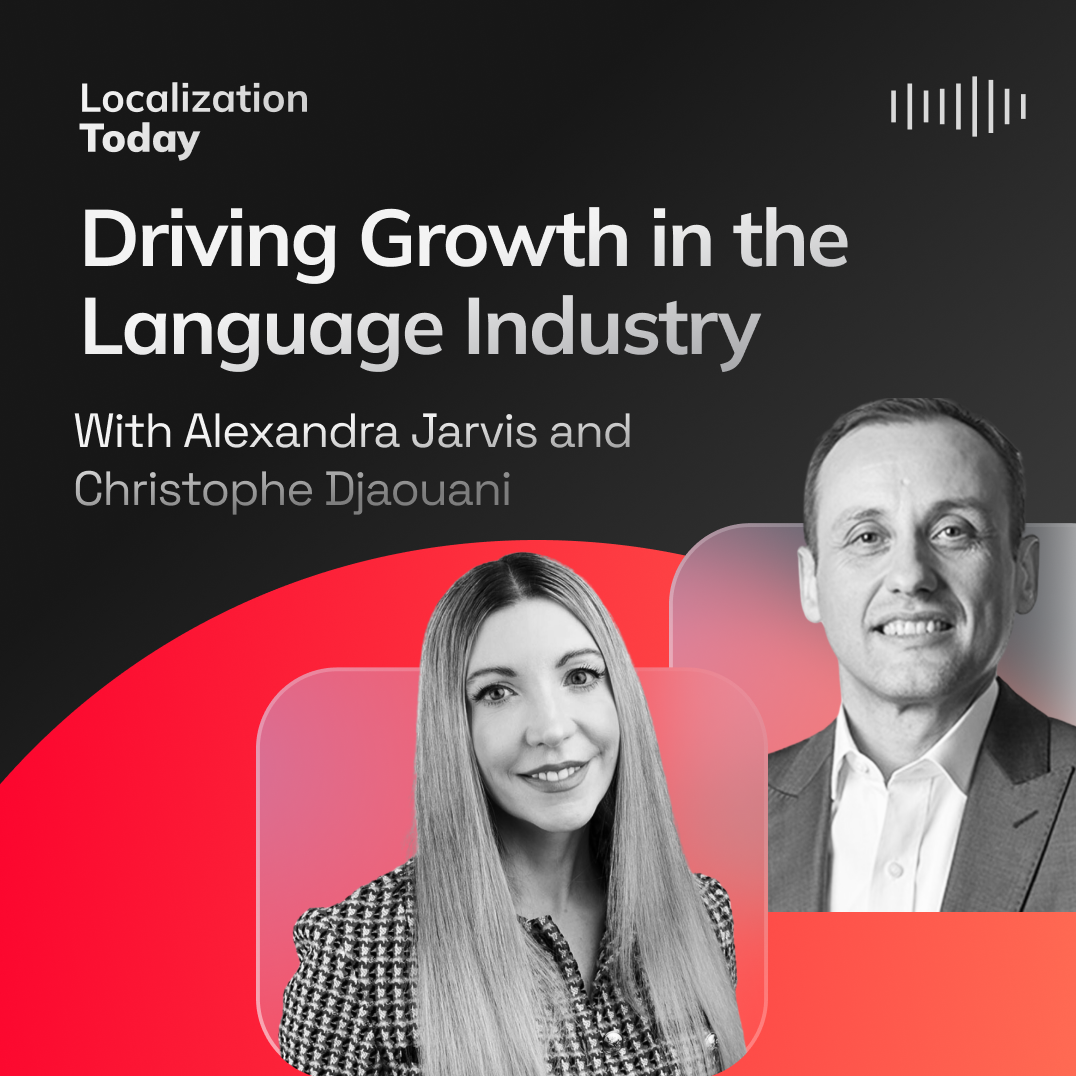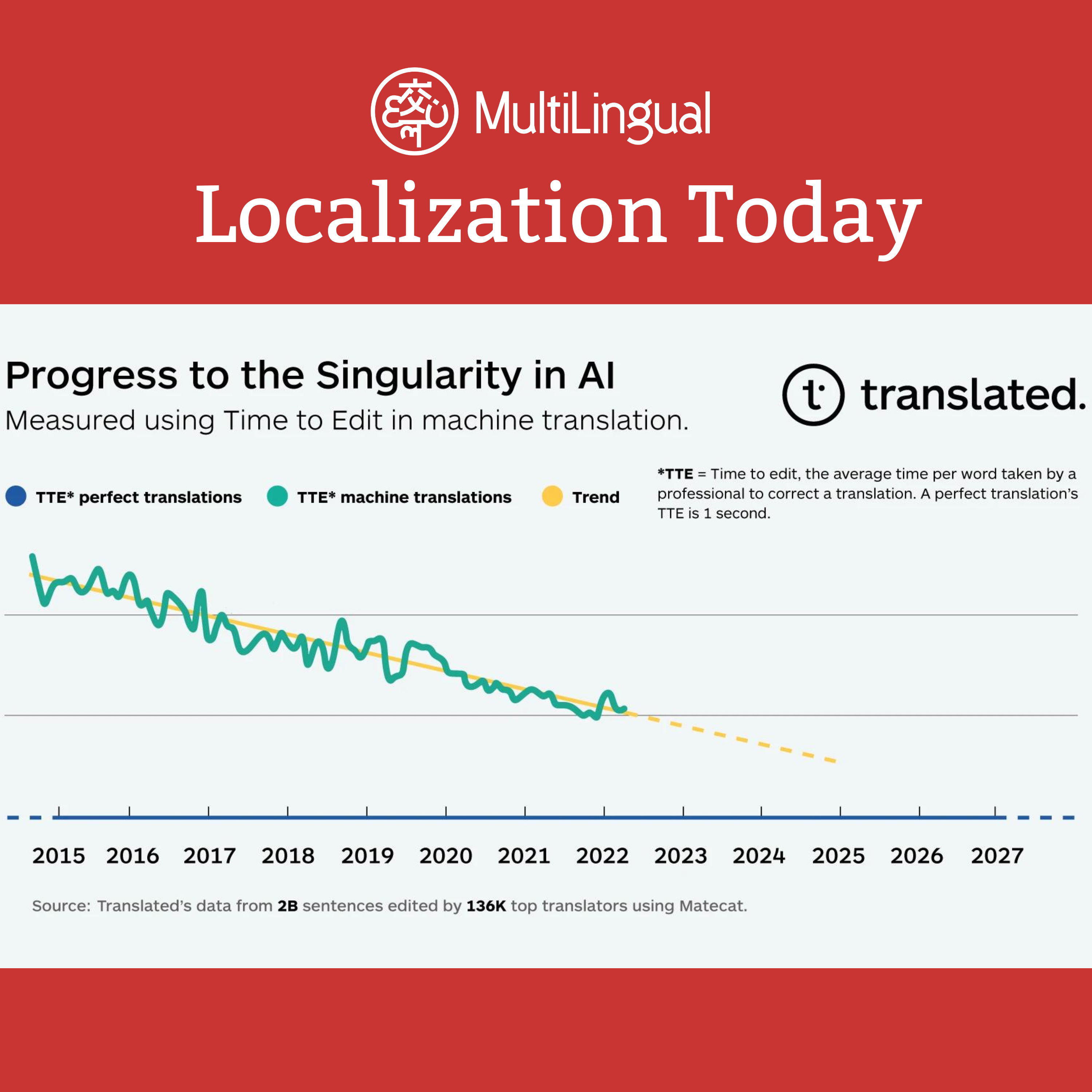Episode Transcript
[00:00:00] AI's place in the Canadian Language Industry by Dominique Bobot Quebec is often regarded as the birthplace of artificial intelligence AI as a result of the pioneering work on neural networks conducted by Professor Yoshua Bengio since 1986, alongside his deep learning research, Bengio has been an ardent defender of AI ethics, contributing to the discussions leading up to the Montreal Declaration for the responsible development of AI.
[00:00:31] In 2019, Bengio and his colleagues were awarded the prestigious a.m.
[00:00:37] turing Prize, known as the Nobel Prize of Computer Science. Historically, automatic language processing began by linking linguistics and computer science than AI.
[00:00:49] Computational linguistics has yielded a host of software tools built around statistical translation and neural translation.
[00:00:57] In Canada and more specifically in Quebec, several academic institutions and research institutes are involved in the development of AI led language technologies.
[00:01:08] Among the leading research laboratories is the Quebec AI Institute Mila, which has been exploring these technologies and making tremendous progress.
[00:01:17] According to Lawrence Charlin, Scientific Director Interim at Mila and Associate professor at HEC Montreal, the challenge lies in the speed of AI's evolution, the extent of its future power and even its convergence with human intelligence.
[00:01:33] AI assisted text writing is moving towards continuous improvement and sentence production despite the fact that for now context is not taken into account.
[00:01:44] While the coherent flow of words has reached a Most significant quality, AI's capacity for reasoning and contextualization deserves more than enhancement.
[00:01:53] Scientists and technology companies are now placing their bets on assessing tools performance compared with the established benchmark, the Human Quality Index. But research into large language models appears to neglect crucial Canadian stakeholders, language professionals themselves rarely in the spotlight, whose contribution to research fails to earn a seat as protagonists, Charlin explains, textual content or even images are treated by researchers as raw data rather than explicit content.
[00:02:26] We have every interest in partnering with linguists and language sector specialists.
[00:02:30] Several research projects now draw on the expertise of linguists at the intersection of computer science systems, strive for reliability but could make mistakes without actually acknowledging them and will not indicate any uncertainty as to their terminological choices.
[00:02:47] This raises concerns in high risk fields such as law and medicine. The Canadian anchoring of quality goes beyond mere tradition and crystallizes in a human audit a seal of quality and professionalism.
[00:03:00] In Quebec, machine translation MT processes imperatively call for stringent revision by third party language professionals.
[00:03:09] Textual revision specialists concur that MT revision differs from human translation editing and entails careful judgment of linguistic and cultural nuances which are not necessarily captured by the tools.
[00:03:22] Hence, the ramification of revision protocols is to embrace robust additional skills, among them the use of automated translation tools and tracking of automation typical errors beyond the crucial task of managing linguistic risks, a field of expertise where Canadian language professionals excel the evolution of a robotized language prompts us to reflect on the evolution of language itself.
[00:03:47] Canadian language practitioners, particularly focused on accurate translation and the use of French, are alarmed by language narrowing and standardization through generic content and boilerplate phrases.
[00:03:59] Charlin shares his insights on how to avoid the trap of predictability and insipid texts.
[00:04:06] Volumes of work play a part here. Data in English, for example, is far more voluminous than in any other language, which suggests that English language results produced by AI are much more accurate. The key would be more specialized, targeted and personalized AI capable of addressing more specific and refined questions in other languages such as French.
[00:04:29] Specific systems could be designed for Quebec or Canada, targeting the research and work to be undertaken towards an environment of richer proprietary content for for optimal results.
[00:04:40] When it comes to data sovereignty, Canada needs an LLM that is trained with Canadian content, is secure, is hosted at home, and harnesses a Canadian AI that is governed by its notoriously rigorous processes.
[00:04:55] Language professionals should abandon their humility and victimization, own the future, and finally achieve associative lobbying, including thousands of solopreneur language professionals. To unite forces, Canada must move from observer to leader, appropriating the tools and adapting them to its own context to reinforce its positioning, reassurance, and operational independence, particularly in a context of global geopolitical tensions.
[00:05:22] This article was written by Dominique Bobot, a language consultant and translation strategist at Nimzi Insights, a market research and consulting company that specializes in language and localization.
[00:05:35] She is recognized for her expertise in the Canadian and Quebec markets.
[00:05:39] Originally published in Multilingual Magazine, Issue 241, June 20 25.


